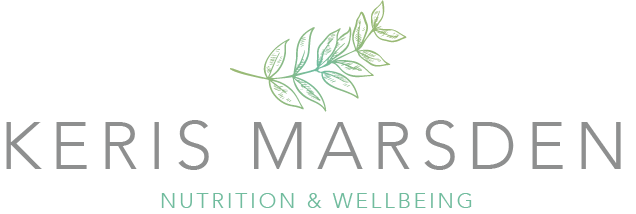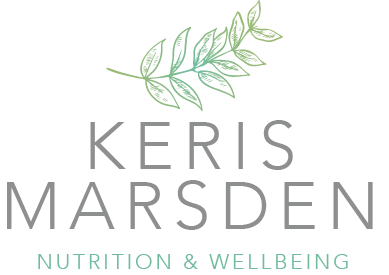Supplements For Runners
I’m one of those strange people that absolutely loves running, even after 25 years of pounding the pavements.
I started running to lose weight but now it’s my mental health game changer.
Nutrition and using targeted nutritional supplements is a fundamental aspect of keeping running a regular feature it in my life.
If you’re fuelling your body sufficiently, you lower your risk of injury, enhance endurance capacity, speed up recovery and keep inflammation in check.
Invest in food first
Before you consider supplements it’s essential you understand that you can’t out supplement a poor diet.
Sub optimal nutrition will rear its ugly head at some point usually in the form of fatigue, gut issues, injuries, cramp, recurrent illness or delayed recovery.
It can stop you ever reaching that PB goals and worst case scenario completely end your love affair with running.
One of the issues with running and increasing your distance is it can lead to nutrition complacency.
I’ve come across several clients who increase sugar, fast food, refined carbs and booze consumption as they up their mileage.
The greater calorie expenditure means it may not be reflected in your body composition but beneath the surface it’s stirring up the perfect storm.
Exercise generates an inflammatory response so stacking a pro-inflammatory diet on top of this increases your risk of illness, injury, inflammation and other chronic health issues.
Be a real food runner
Outside your running sessions it’s important to prioritise a nutrient dense, anti-inflammatory diet.
Running and energy generation requires a stack of micronutrients (vitamins and minerals).
Mitochondria are the part of the cell responsible for making the body’s energy currency known as ATP.
They can only make ATP if your body has adequate B vitamins, magnesium, iron, CoQ10, zinc, copper and other nutrients.
Protein intake is also essential to maintain and build muscle which is essential for runners as muscle store glucose known glycogen which along with fat provides an important fuel source on your longer runs.
Focus on fuelling your runs with the following:
Quality proteins: meat, poultry, fish, eggs, tofu, yoghurt, beans
Quality carbs: potatoes, root veg, vegetables, oats, quinoa, rice, legumes, fruit, honey, maple syrup
Quality fats: olive oil, oily fish, red meat, cheese, yoghurt, butter, nuts, seeds,
Antioxidants: vegetables, herbs, spices, coffee, tea, alcohol
Quality chocolate: Get a regular fix of dark chocolate (>70% cocoa). It can increase nitric oxide in the body which helps blood vessels to vasodilate (relax). This increases blood flow 😊
Supplements to consider
Depending on your weekly mileage and diet you may also benefit from adding in some supplements to support your body.
Here’s my typical recommendations:
Quality protein powder
A convenient way to meet your protein requirements as a runner, protein is just as important for cardio as it is for strength training.
You can easily get 25-40g from protein supplements by adding to smoothies, porridge, pancakes, yoghurt or making protein balls/bars.
Ideally find a quality protein powder with minimal ingredients, you can find more information in Protein Powders 101.
2. Creatine monohydrate
Traditionally a favourite of the body building community but new research has shown creatine supplementation can be beneficial for endurance performance.
Meat is the primary source of dietary creatine so it’s particularly beneficial if you’re vegetarian or predominantly plant based. For quality manufacturing look for the Creapure trade mark.
The recommended daily dose is around 5g (1 teaspoon).
3. Magnesium Citrate or Bisglycinate
Magnesium is used abundantly by the body to generate energy, control blood sugar levels and for muscular function. The more active you are the more magnesium you need. Supplementing with 200-400mg across the day is beneficial.
4. Electrolytes
These can often be an energy and endurance gamechanger by enhancing hydration, muscle recovery and reducing cramps and stitches. My favourite are Robb Wolf’s LMNT due to the higher sodium/magnesium content and many clients have mentioned significant decreases in restless legs and morning fatigue. Elete is another great brand.
You can add these to your morning tea or coffee or have with water across the day.
5. Omega 3’s
Ideally aim to balance your intake of omega 3 and 6 in your diet by consuming oily, fatty fish 2-3 times a week and limiting omega 6 (avoiding seed oils like sunflower oil, processed foods and intensively reared animal products).
An omega 3 supplement can be a helpful means of maintaining an optimal 3:6 ratio.
Always use a good quality oil where the manufacturers have high purity standards to avoid ocean contaminants like heavy metals and plastics.
Some high-quality brands are BioCare, Eskimo, Nordic Naturals, Bare Biology, Thorne, Designs For Health and Now Foods.
6. Zinc citrate
Similar to magnesium your zinc requirements may increase with the amount of exercise you do.
Alongside eating zinc rich foods (meat, fish, poultry, pumpkin seeds and nuts) you may benefit from additional supplementation with zinc citrate a couple of times a week.
Unless receiving professional guidance stick to a dose of 8-25 mg.
Zinc is best taken away from food (2 hours ideally) and should be balanced with adequate copper intake from green leafy veg, nuts, seeds, dark chocolate and mushrooms.
7. Vitamin D3 and vitamin K2
If you’re getting a decent amount of outdoor runs in across the week (and aim to wear minimal clothing i.e. vests and shorts for more daylight exposure) you’re probably getting more vitamin D than most people.
It’s still likely you’ll need to supplement with vitamin D3 across the winter months (October-March) in the UK.
It’s recommended you supplement with 400-2000 IU’s (10-50 mcg), possibly up to 4000 IU’s if you’re prone to lower levels but seek professional guidance and test levels before using a higher dose.
NHS recommends keeping your level >75 nmol/L
Around 100-125 75 nmol/L may be more optimal for immune function and protecting against decreases in the winter months.
It can also be helpful to supplement with vitamin K2 as it supports the bone building activity of vitamin D3 by moving calcium into bones.
You will find K2 in some multivitamins (e.g. Biocare Methyl multi) or some vitamin D formulas (Better you and Nutri Advanced) or as a single nutrient.
Ethnicity, skin colour and daylight exposure all influence levels so if you can afford to test this is beneficial.
Better You, Thriva and Medichecks all provide reasonably priced testing options.
Other supplements to consider
Collagen
If you’re prone to injuries, tendonitis or recovering from surgery. There’s some research suggesting hydrolysed collagen maybe beneficial.
Most products recommend a dose of 1 tablespoon daily and it can dissolved in a warm drink or added to a smoothie.
Bovine collagen has some research to suggest it could be helpful for osteoarthritis, Marine collagen is another option.
You can read more on collagen in my article here.
Keep iron levels optimal
Many runners I work with present with low ferritin (stored iron) as iron usage increases with exercise so it’s important to ensure you consume adequate dietary intake and women need to consider menstrual losses.
Often a combination of haem iron (animal based) and non-haem iron (plant based) is the best way to optimise iron levels.
If you’ve reduced animal products in your diet it can be helpful to have your levels tested and you may need to supplement with iron to get levels back to optimal reference ranges, not borderline (for a woman this is between 45-110 and a man 55-200 micrograms/L ).
I recommend iron bisglycinate as its gentler on the digestive system. Biomedica BioHeme, Nutri FerroDyn, Nature’s Plus Hema-Plex or Designs For Health Ferrochel are good products.
The dose depends on the deficiency and should be ideally carried out under professional guidance by a nutritionist or medical professional.
NOTE: never supplement with iron unless you know your levels are low as it’s pro-inflammatory in excess.
Keep an eye on your calcium intake
The daily recommendation for calcium is 700 mg daily for adults in the UK.
You can assess you dietary intake here with a calcium calculator.
Many people fall short and if you’re a frequent exerciser or heading into menopause your needs could be closer to 1000-1200mg daily.
Tinned fish with bones (salmon and sardines), dairy, tahini, nuts, green vegetables and molasses are some good wholefood sources.
½ teaspoon of ground eggshell can be consumed and contains 800mg (simply boil eggs, keep the shells and whizz in a blender, keep in a jar in the fridge).
Calcium supplementation is another option if these food choices are an option for you.
Want a personalised supplement plan?
These are just some basic guidelines, there are other nutrients to consider and digestive support as running can be stressor to your gut.
If you’re keen for more personalised support you can book a free 15 minute call with me for a chat.

